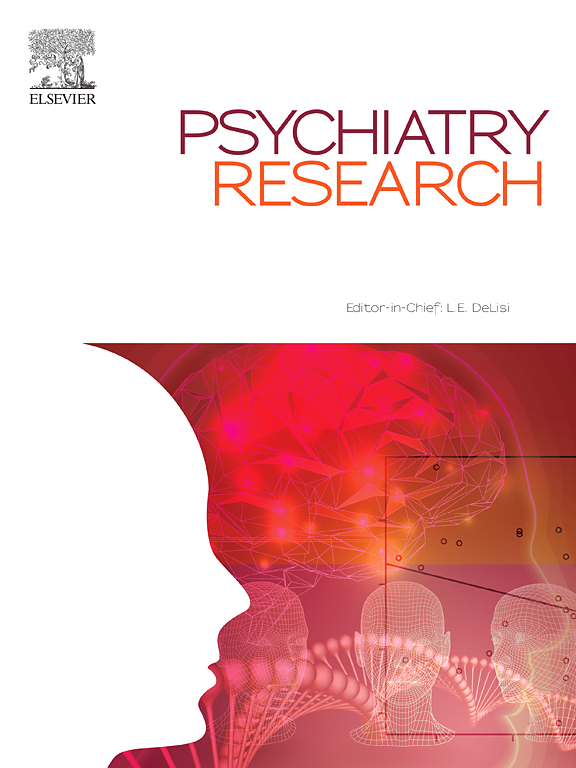Examining the role of insight, social support, and barriers in treatment engagement in individuals diagnosed with psychotic disorders
IF 4.2
2区 医学
Q1 PSYCHIATRY
引用次数: 0
Abstract
Treatment engagement for individuals with psychotic disorders is often low, and engagement is considered critical to improving outcomes and reducing chronicity of the illness. Lack of insight in psychosis has been associated with poor treatment engagement and is considered a core feature of psychotic disorders. One factor that may improve treatment engagement in psychosis, perhaps for individuals with low insight, is social support. Social support may improve treatment engagement by promoting insight or overriding the challenges of engagement related to insight, however, the relationships between insight, social support, and treatment engagement are not clear. The current study hypothesized that greater insight and social support would result in better treatment engagement, and that greater social support would enhance treatment engagement for individuals with low insight. Sixty-eight (N = 68) participants with a psychotic disorder completed clinical interview and self-report measures. A relationship between insight and treatment engagement was not found, thus, social support did not moderate a relationship between the two. Participants reported on multiple treatment barriers impacting treatment engagement. As such, the impact of barriers to treatment may require consideration before accurately measuring the above constructs.
求助全文
约1分钟内获得全文
求助全文
来源期刊

Psychiatry Research
医学-精神病学
CiteScore
17.40
自引率
1.80%
发文量
527
审稿时长
57 days
期刊介绍:
Psychiatry Research offers swift publication of comprehensive research reports and reviews within the field of psychiatry.
The scope of the journal encompasses:
Biochemical, physiological, neuroanatomic, genetic, neurocognitive, and psychosocial determinants of psychiatric disorders.
Diagnostic assessments of psychiatric disorders.
Evaluations that pursue hypotheses about the cause or causes of psychiatric diseases.
Evaluations of pharmacologic and non-pharmacologic psychiatric treatments.
Basic neuroscience studies related to animal or neurochemical models for psychiatric disorders.
Methodological advances, such as instrumentation, clinical scales, and assays directly applicable to psychiatric research.
 求助内容:
求助内容: 应助结果提醒方式:
应助结果提醒方式:


